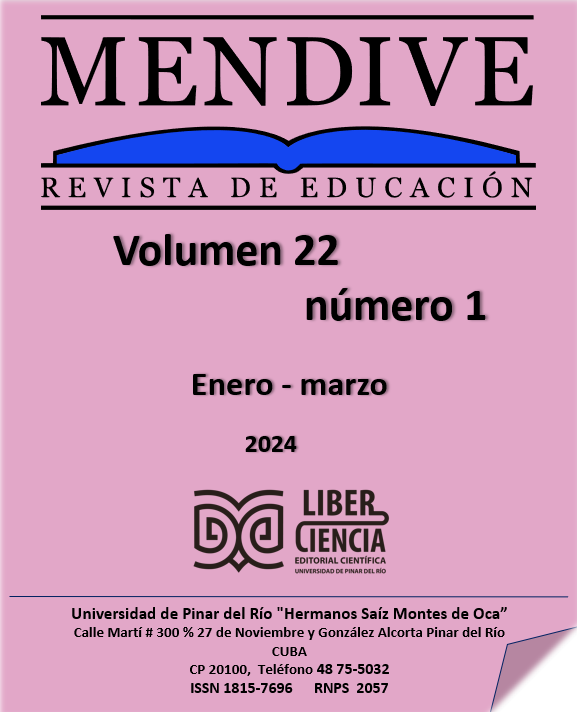The professionalized linguistic teaching task: an alternative from linguistic subjects
Main Article Content
Abstract
The linguistic training of students is one of the important problems within the Linguistic Studies discipline, in the Bachelor of Spanish Education-Literature career, which allows to enhance interest in the chosen profession. The objective of this article is to propose a professionalized linguistic teaching task that contributes to a better understanding of the linguistic phenomenon. Theoretical methods such as the historical method; logical methods, the hypothetical-deductive, systemic and structural functional together with the modeling, were used throughout the investigation and as procedures of the theoretical methods, analysis and synthesis and induction and deduction were used; as empirical methods, documentary analysis and class observation; techniques such as interview and survey. The processed information determined that the professionalized teaching task in this career has not been adequately treated; Strengths and weaknesses are detected in the study of the language as a system with a professional approach. Some aspects concerning the teaching task in the Linguistic Studies discipline and its relationship with the study of language as a system with a professional approach are identified, an element that favors the linguistic training of the Spanish-Literature teacher.
Downloads
Article Details

This work is licensed under a Creative Commons Attribution-NonCommercial 4.0 International License.
References
Álvarez de Zayas, C. M. (2019). Metodología de la investigación (9na ed.). Grupo Editorial Kipus. http://alsieconsultores.com.bo/tienda/venta-de-libros/metodologia-de-la-investigacion-cientifica/
Castillo Padrón, Y., & Baute Álvarez, L. M. (2021). Sistema de tareas docentes integradoras: Contribución a la formación ética profesional de los estudiantes contadores. Revista Conrado, 17(80), Art. 80.
Collazo Salcedo, M. M. (2018). Tarea docente para el proceso enseñanza aprendizaje del procesamiento avanzado de documentos digitales. VARONA, Revista Científico -Metodológica, 66, 1-6.
Guillen Estevez, A. L., Ramírez Mesa, C., & Guillen Valdés, A. (2020). La tarea docente integradora en el proceso enseñanza aprendizaje de la física. Didasc@lia: Didáctica y Educación, 11(2), 106-116.
Hernández Garces, A., & Avilés Rodríguez, E. (2019). Desarrollo de habilidades informáticas en la disciplina Química Orgánica. Mendive. Revista de Educación, 17(2), 254-263.
Hernández Infante, R. C., Infante Miranda, M. E., & Enríquez Chugá, J. F. (2021). Una propuesta dirigida a la educación de la personalidad de los estudiantes universitarios. Revista Conrado, 17(78), Art. 78.
Hernández Infante, R. C., Infante Miranda, M. E., & Hurtado Lomas, C. R. (2021). El aprendizaje autónomo: Una exigencia de la enseñanza virtual. Experiencias en Uniandes, Ibarra. Revista Conrado, 17(S1), Art. S1.
Martínez Zamora, L. E., Hernández Páez, L., & López Méndez, E. R. (2016). La tarea docente en la formación del profesor de Biología-Química. Mendive. Revista de Educación, 14(3), 283-291.
Mena Martín, O., Breijo Worosz, T., Orraca Castillo, O., & Martínez Orraca, B. (2017). El desarrollo de los modos de actuación profesional competentes en recién graduados de Ciencias Médicas. Revista de Ciencias Médicas de Pinar Del Río, 21(5), Art. 5.
Sánchez Cabezas, P. del P., López Rodríguez, M. M., & Alfonso Moreira, Y. (2018). La orientación educativa en la actividad pedagógica profesional del docente universitario. Revista Conrado, 14(65), Art. 65.


